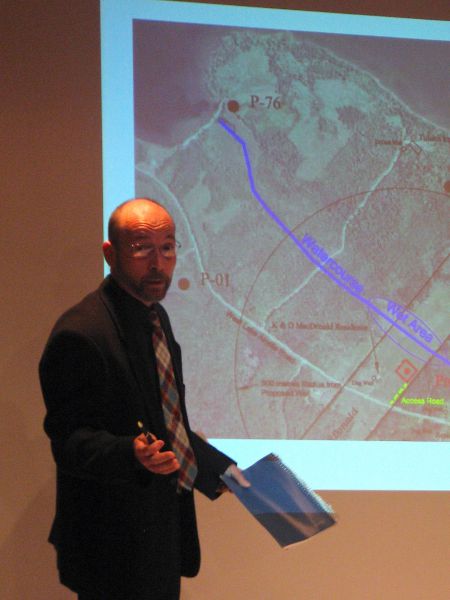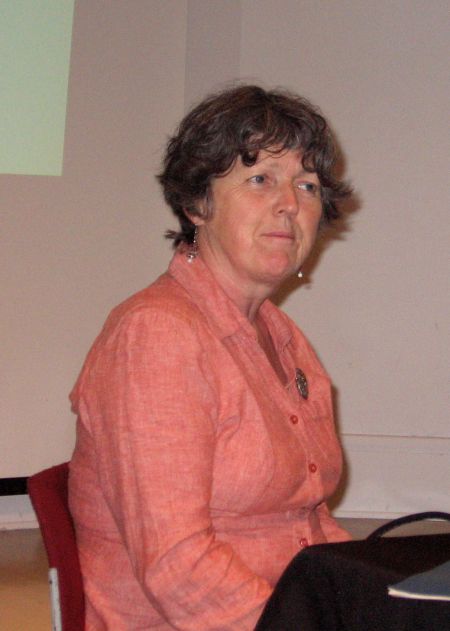Oil drilling does not belong in Lake Ainslie. It conflicts with the environment, the people and the way of life there, the Margaree Environmental Association (MEA) told a small audience at a press conference today.
Members of the Cape Breton association have travelled to Halifax for a Supreme Court appearance tomorrow, where they will appeal the Minister of Environment’s decision to uphold a permit for exploratory drilling by Petroworth Resources Inc. in the West Lake Ainslie watershed.
MEA co-chair Neal Livingston said the group’s main argument rests on the permit contradicting the minister’s responsibility to protect the environment and human habitation. He also mentioned the association’s concern that issuing this permit would set a precedent for future development in the area — development that is already little controlled by wishy-washy regulations or total lack thereof.
“There is no regulation in Nova Scotia as to how close an oil rig can come to a home or a water supply,” Livingston said, pointing to an aerial map of the proposed development area that showed a house 100m from the drill site and the shoreline of Lake Ainslie 600m away.
Livingston also noted a brook that runs close to the proposed site. He said development cannot happen within 100m of a watercourse, but the government does not define this brook as such.
“Truth is a painting drawn from our perspectives and tainted by our biases,” said Robert Parkins, who lives 250m from the proposed drilling site. Just as Livingston said that the representatives of the ministry “seemed to be able to come on site and take pictures of a lot of stuff but not the brook,” he argued the government left several important landmarks off the map it submitted to the court.
“There is a well missing here,” he said, jabbing the projector screen with his finger, then brought up another map indicating several historic wells. Although they are no longer used as water sources, Parkins said drilling could cause “well communication,” meaning water is forced through underground channels and shoots up kilometres away. This water can be rife with toxins and chemicals.
The environment department never considered this potential problem and others, such as noise pollution and wind-carried fires, said Parkins, because an environmental impact assessment was not conducted on the area. Why? The oil and gas industry is not required to conduct such a study if the proposed drill site is less than four hectares in area.
“This thing tomorrow, good or bad, it makes no difference; it won’t end there,” said Parkins, “because all the government will do is take this paperwork and rewrite it.”
Marilyn MacDonald compared the department’s behaviour to bullying: coming in, pushing the residents around, trying to get their way, and ultimately leaving them worse for wear.
Her family has been living in the area for eight generations. She said the community has an “agrarian vision” for the water and land. “The water is very clean. You can dip your cup and drink waster anywhere,” she said. “That’s worth something in these days — worth more than oil.”
She said she dreads how the quality of life would change if the oil drilling were to happen. “I just hope sanity rules,” she said of the court case tomorrow.
Although the many of the discrepancies in the government’s evaluation of the site were discovered by MEA members after the appeal was filed, and therefore cannot be introduced as new evidence tomorrow, Livingston hopes that highlighting its sloppy research job will tarnish the government’s case.
“It really speaks to how much the government is willing to do development at any cost,” he said.
The Margaree Environmental Association will present its case tomorrow at 9:30am at the Nova Scotia Supreme Court on Lower Water Street. Expect coverage by the Halifax Media Co-op soon thereafter.




